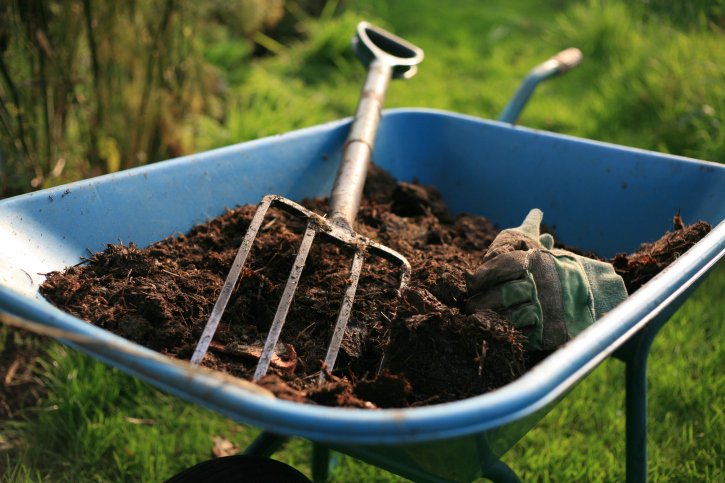
Backyard Composting Under Threat? How to Protect Your Right to Compost and Build Community Resilience

There's nothing quite like the satisfaction of watching kitchen scraps and yard waste transform into rich, dark compost. As homesteaders and gardeners, we know the magic that happens when food waste turns into "black gold" – nourishing our gardens, reducing our reliance on chemical fertilizers, and shrinking our carbon footprint. It's a beautiful, natural cycle, and it's at the heart of a sustainable lifestyle.
But what if I told you this fundamental homesteading practice is increasingly under threat? Across the country, communities are grappling with composting regulations, leading to restrictions and even outright bans in some areas. Concerns about odor, pests, and aesthetics are fueling the opposition, and it's time we, as stewards of the land, address these issues head-on.
This blog post will delve into the growing challenges to backyard composting, explore the reasons behind the resistance, and, most importantly, empower you to protect your right to compost and build more resilient communities. We’ll explore common concerns, debunk myths, and equip you with the knowledge and strategies to advocate for composting-friendly policies in your area. Because composting isn't just about enriching our soil; it's about cultivating a more sustainable and self-sufficient future for all.
The Growing Opposition to Backyard Composting: Unpacking the Concerns
[Composting Under Fire? Understanding the Challenges and Building a Grassroots Movement]

The resistance to backyard composting isn't always rooted in malice. Often, it stems from legitimate concerns, misconceptions, and a lack of understanding. To effectively address the opposition, it's crucial to understand the underlying issues.
- Odor Complaints: This is perhaps the most common complaint. Improperly managed compost piles, particularly those lacking adequate aeration or containing inappropriate materials (like meat or dairy), can indeed produce unpleasant odors.
- Pest Concerns: Rodents, flies, and other pests can be attracted to poorly maintained compost bins. This is especially concerning in densely populated areas where even a few pests can become a nuisance.
- Aesthetic Objections: Some people simply find compost bins unsightly, especially if they are not properly contained or are located in prominent locations.
- Wildlife Attraction: In some areas, compost piles can attract larger wildlife, such as raccoons, opossums, or even bears, posing a safety risk to residents.
Beyond individual concerns, the legal landscape plays a significant role. Many municipalities have zoning laws and nuisance regulations that can restrict or even ban backyard composting. These ordinances often address issues like odor, pest control, and visual blight, giving local authorities the power to regulate or prohibit activities deemed disruptive or harmful to the community.
For example, some towns have ordinances that require compost bins to be located a certain distance from property lines, while others prohibit the composting of certain materials altogether. In extreme cases, residents may face fines or even be forced to remove their compost bins entirely.
The rise of packaged waste management solutions and increasing urbanization has distanced many from understanding or experiencing natural cycles like composting. Many people simply haven't been exposed to responsible composting practices and operate under outdated (and often inaccurate) assumptions.
Debunking the Myths: Best Practices for Odor-Free and Pest-Free Composting

The good news is that most of the concerns surrounding backyard composting can be easily addressed with proper management and best practices. Composting doesn't have to be stinky, messy, or attract pests. Here's how to do it right:
- Master the Carbon/Nitrogen Ratio: The key to successful composting is achieving the right balance of "browns" (carbon-rich materials like dry leaves, shredded paper, and wood chips) and "greens" (nitrogen-rich materials like grass clippings, vegetable scraps, and coffee grounds). A good rule of thumb is to aim for a 2:1 or 3:1 ratio of browns to greens. This provides the optimal environment for decomposition and prevents foul odors.
- Aerate Regularly: Compost piles need oxygen to thrive. Turning the pile regularly – ideally every few days – ensures proper aeration and prevents anaerobic conditions, which lead to unpleasant smells. You can use a compost turner, a pitchfork, or even just a shovel to mix the materials.
- Choose the Right Compost Bin: Select a compost bin that suits your needs and space. Options range from simple open piles to enclosed tumblers. Enclosed bins can help contain odors and deter pests. Ensure that the bin has adequate drainage to prevent waterlogging.
- Be Mindful of Materials: Avoid composting meat, dairy products, oily foods, and pet waste, as these can attract pests and create strong odors. Stick to plant-based materials for best results.
- Manage Pests: If pests are a concern, consider using a compost bin with a lid and a screen bottom to prevent rodents from entering. You can also add a layer of browns on top of the pile to deter flies.
- Communicate With Your Neighbors: Open communication can go a long way in preventing conflicts. Talk to your neighbors about your composting practices, address any concerns they may have, and even offer them some of your finished compost!
Quick Compost Activator Recipe:
Mix equal parts finished compost, garden soil, and composted manure into your compost pile to speed up the decomposition process.
With a little knowledge and effort, anyone can compost responsibly and create a valuable resource for their garden.
Taking Action: How to Advocate for Composting Rights in Your Community

If you're facing restrictions on backyard composting in your community, don't despair! There are many steps you can take to protect your rights and promote composting-friendly policies.
- Research Local Ordinances: Start by familiarizing yourself with your local composting regulations. Contact your city or town hall to obtain copies of relevant ordinances and understand the specific restrictions in place.
- Engage with Local Government: Attend town hall meetings, contact your local council members, and voice your concerns about composting restrictions. Explain the benefits of composting and advocate for policies that support responsible practices.
- Educate Your Neighbors: Share information about the benefits of composting and address any concerns they may have. Offer to show them your composting setup and demonstrate how to compost responsibly.
- Form a Composting Advocacy Group: Connect with like-minded individuals in your community to amplify your voice. Organize meetings, workshops, and outreach events to promote composting and advocate for policy changes.
- Promote Model Ordinances: Research model composting ordinances from other communities and advocate for similar policies in your area. Model ordinances provide a framework for regulating composting in a way that is both effective and environmentally friendly.
- Start a Community Composting Program: A community composting program can be a powerful way to demonstrate the benefits of composting on a larger scale. Work with local organizations to establish a composting site where residents can drop off their organic waste.
- Show, Don't Just Tell: Share photos and stories of gardens thriving due to the addition of compost. Positive visual representation goes a long way to addressing fears.
Don't underestimate the power of grassroots advocacy. By working together, we can create positive change and ensure that everyone has the right to compost.
Building Community Resilience Through Composting: A Circular Economy at Home
Composting is more than just a way to get rid of kitchen scraps; it's a cornerstone of community resilience. It’s creating a local circular economy.
- Reducing Landfill Waste: Composting diverts organic materials from landfills, reducing the amount of waste that ends up in our overflowing landfills.
- Improving Soil Health: Compost enriches soil, improving its fertility, water retention, and structure. This, in turn, leads to healthier plants and more productive gardens.
- Strengthening Local Food Systems: By creating healthy soil, composting supports local agriculture and reduces reliance on external inputs like chemical fertilizers.
- Creating a Circular Economy: Composting transforms waste into a valuable resource, creating a closed-loop system that minimizes waste and maximizes resource utilization.
- Mitigating Climate Change: Composting reduces greenhouse gas emissions by diverting organic waste from landfills, where it would decompose anaerobically and produce methane, a potent greenhouse gas.
By embracing composting, we can create more self-sufficient, sustainable communities that are less vulnerable to external shocks and more resilient in the face of environmental challenges.
From Individual Action to Collective Impact: Composting for a Brighter Future

Protecting our right to compost is vital for building a more sustainable and resilient future. Individual actions, when combined, can create a significant positive impact on communities and the environment.
Every scoop of compost added to our gardens is a step towards healthier soil, reduced waste, and a more sustainable food system. Let's work together to ensure that composting remains a vital part of our homesteading practices and a cornerstone of community resilience.
Take Action Today:
- Research local composting regulations.
- Share this blog post with friends and neighbors.
- Start or improve your backyard composting practices.
- Advocate for composting rights in your community.
- Join or create a local composting advocacy group.
- Leave a comment sharing your composting experiences or concerns.
- Sign up for the Better Homes and Harvests newsletter for more tips and resources.
- Explore other articles on the site related to gardening, sustainable living, and community resilience.